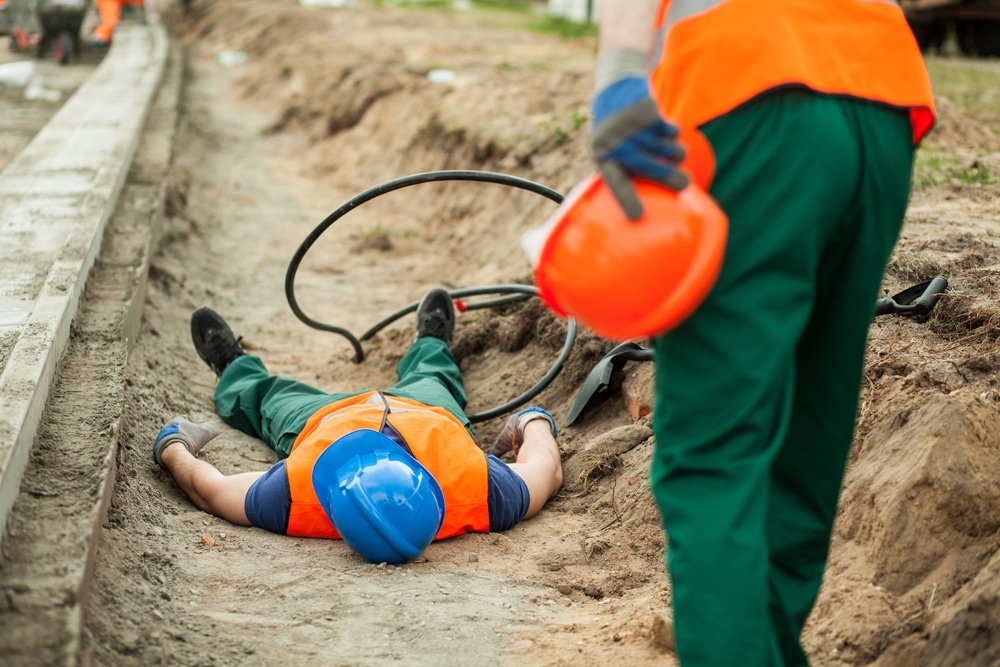Call 888-590-4030 today if you need a workers’ comp doctor in NYC to treat high-voltage injuries.
According to the Electrical Safety Foundation International (ESFI), over 2,200 nonfatal workplace electrical injuries occurred in 2020, requiring time away from work for recovery. That might seem insignificant, but it’s more than a 15% increase from the previous year.
Electrical injuries can occur to workers across various sectors, often involving more than electric shocks. However, you and your colleagues can use the best safety practices around electrical accidents and injuries on the job.
For work-related injury considerations, you should receive treatment from a workers’ compensation specialist. Workers Comp Doctor is an online database featuring workers’ comp doctors in New York, New Jersey, and Connecticut.
Here, we share some of the most common electrical injuries and how to prevent them while working.
What Occupations Are Most at Risk for Electrical Injuries?
Exposure to electrical currents is one of the most dangerous workplace hazards. Unfortunately, many workers are unaware of electrical hazards around their job sites, making them vulnerable to severe electrical injuries.
Employers must comply with state and federal safety regulations to protect their workers. Though any employee can sustain an injury due to electrical exposure, these groups are the most vulnerable to injuries:
- Electrical installers and repairers
- HVAC and refrigeration professionals
- Roofers
- Electricians
- Construction workers
- Carpenters
- Telecommunication installers and repairers
- Tree service workers
- Landscapers
- Industrial machinery repair and maintenance professionals
Different Types of Electrical Injuries
Electrical injuries fall into four categories: fatal electrocution, electric shock, thermal burns, and falls or other injuries resulting from contact with an electric current. Injuries can range from minor to severe, but the most devastating is cardiac arrest due to electrocution.
In 2020 alone, over 120 people died from electrical injuries, with about 60% of fatal injuries resulting from electrocution due to direct contact with a live wire. Electrical injuries can also lead to short-term and long-term health issues. In severe cases, injuries can lead to physical disfigurement, mental health struggles, and physical disabilities.
Here are other injuries you could have due to electrical exposure:
- Nerve damage
- Cardiac issues, such as heart damage and arrhythmia
- Vision loss
- Bone fracture
- Seizures
- Neurological injuries
- Memory loss
You don’t have to touch a live electrical wire to get an electrical injury, though it is a common cause. You could also get hurt by touching buried powerlines, working with electricity in wet environments, and improperly using electrical equipment or machinery.
Symptoms of Electric Shock and Electrocution
You might not develop symptoms immediately if you receive a serious electric shock. It’s always best to seek medical attention immediately following electric current exposure. Though the initial shock often produces a sharp, quick pain, you could also experience the following:
- Loss of consciousness
- Headaches
- Electrical burn
- Hearing issues
- Breathing issues
- Muscle twitching
- Numbness
- Irregular heartbeat
How to Prevent Electrical Injuries While Working
Whether you work in an office, in the field, or inside a private residence, you likely rely on electricity to do your job. Electricity flows through outlets, power lines, computers, machinery, and other sources. Though professionals who work directly with electricity receive extensive safety training, you can ensure workplace safety in any industry by following these tips.
Don’t Interact with Live Electrical Currents
The best way to prevent electrical injuries is to be cautious around electrical hazards, including live currents. Don’t interact with the exposed lines if you do not have the qualifications and training necessary to handle currents above 50 volts. If you have to be in a room with equipment exceeding 50 volts, keep your distance, ensure the panel doors are shut and do not touch exposed wires.
Use Electrical Cords Safely
Electrical cords can give you a nasty shock if you’re not careful. When unplugging a cable from an outlet, pull on the top of the plug, not the line. Pulling the cord can damage the wiring, leading to an electric shock or an electrical fire.
It’s also best not to fasten cords to flat surfaces with staples. Though you might need to keep cables out of the way to prevent tripping hazards, a metal staple can damage the cord and cause the electrical panel to trip. It’s better to use cable covers to keep cords out of harm’s way without damaging the equipment’s wiring.
Take Note of Conductive Tools and Materials
When working around a possible electrical hazard, never assume a live electrical current isn’t flowing through the area. Use non-conductive tools in these spaces instead of equipment with conductive materials. Electricity flows easily through conductive materials, increasing the risk of an electrical injury.
Who Is Responsible for Electrical Injuries?
It’s possible to file a lawsuit against negligent or liable parties if you are a victim of an electric shock accident. Establishing liability for electrical injury cases can be challenging because multiple parties may be responsible for your injuries. For instance, incorrect installation and maintenance of powerlines may be the fault of a local utility company or the property owner.
However, employers can be responsible for their workers’ electrical accidents if they fail to comply with safety guidelines, training requirements, etc. For example, if faulty equipment is to blame for someone’s electrical injuries, it will fall under product liability law, which holds the manufacturer, designer, distributor, or marketer responsible for the incident.
Looking for a Workers’ Comp Doctor Near You?

If you have electrical injuries due to someone else’s negligence on the job, you should consider a workers’ compensation lawsuit to pursue monetary damages. When you need a workers’ comp doctor in NY, NJ or CT, rely on Workers Comp Doctor, an easy-to-use online directory for workers’ compensation doctors near you.
We thoroughly vet every doctor within our directory to ensure they have experience diagnosing and treating accident injuries. Our database includes multiple specialties, from orthopedic surgery to chiropractic care. However, doctors in our directory accept most insurances for electrical injuries, including workers’ compensation, no-fault, and PIP (personal injury protection).
View our blog to learn more causes of work-related injuries, then contact us at 888-590-4030 to begin your doctor search. Same-day appointments may be available.

